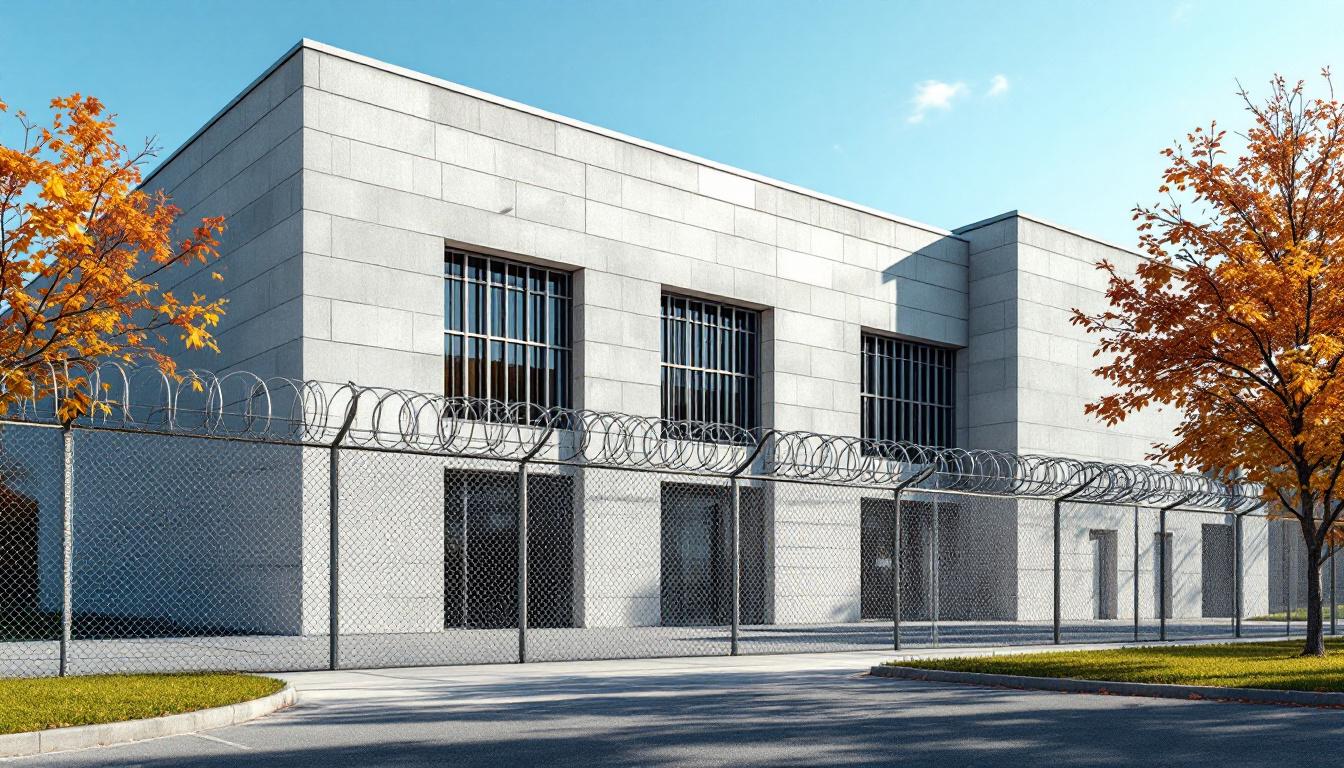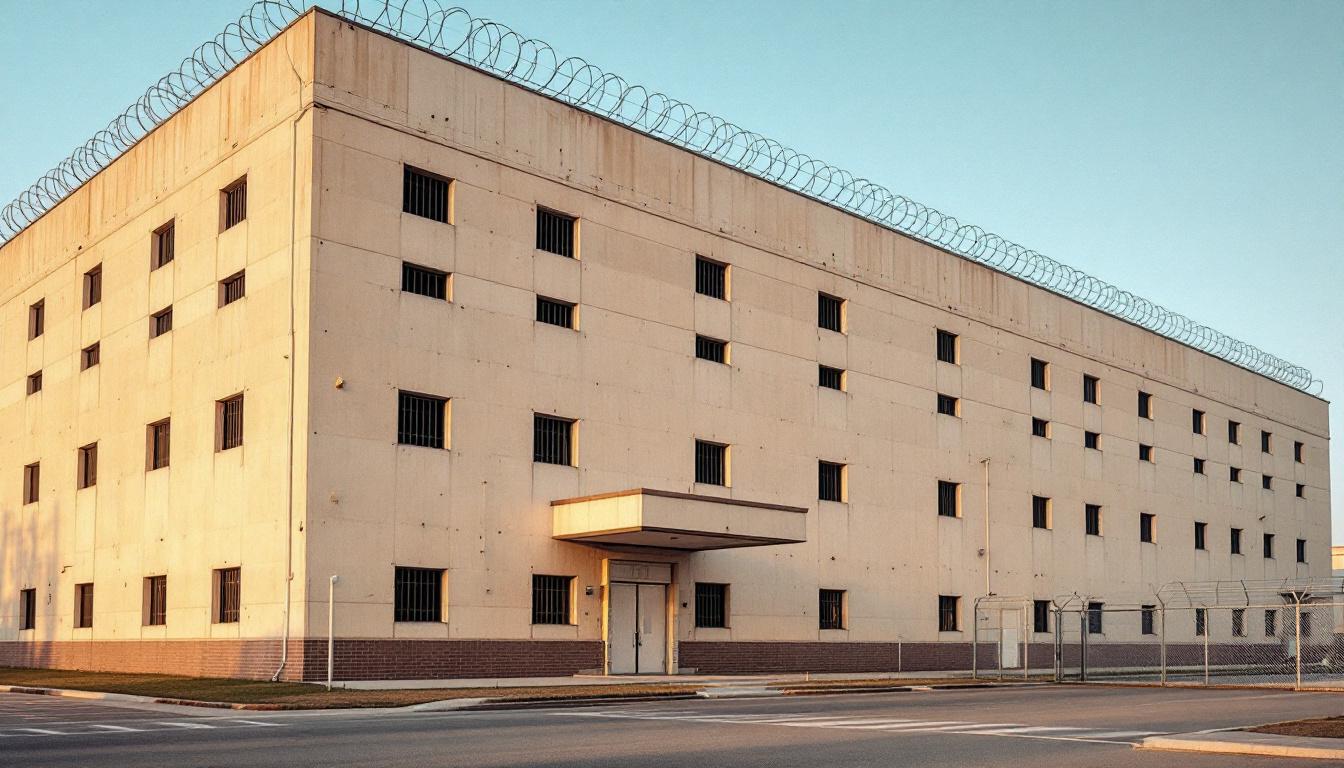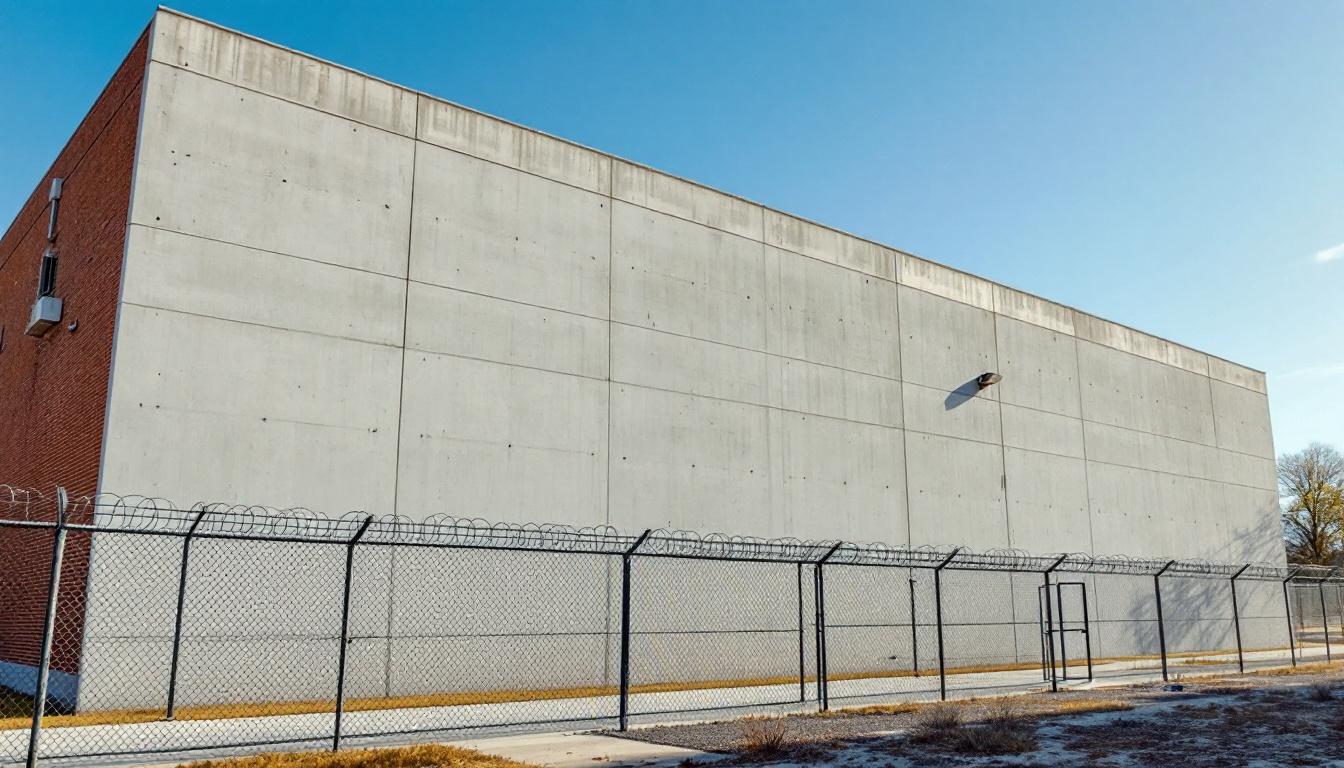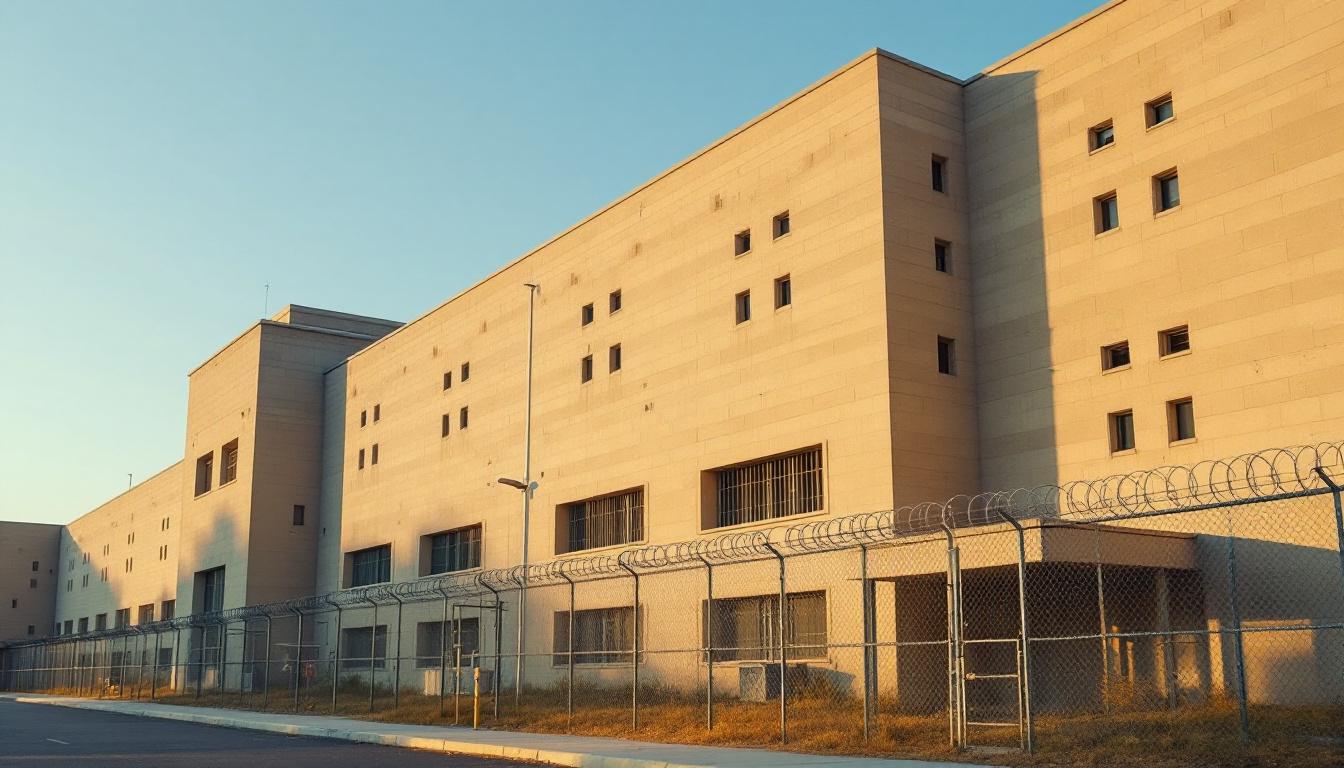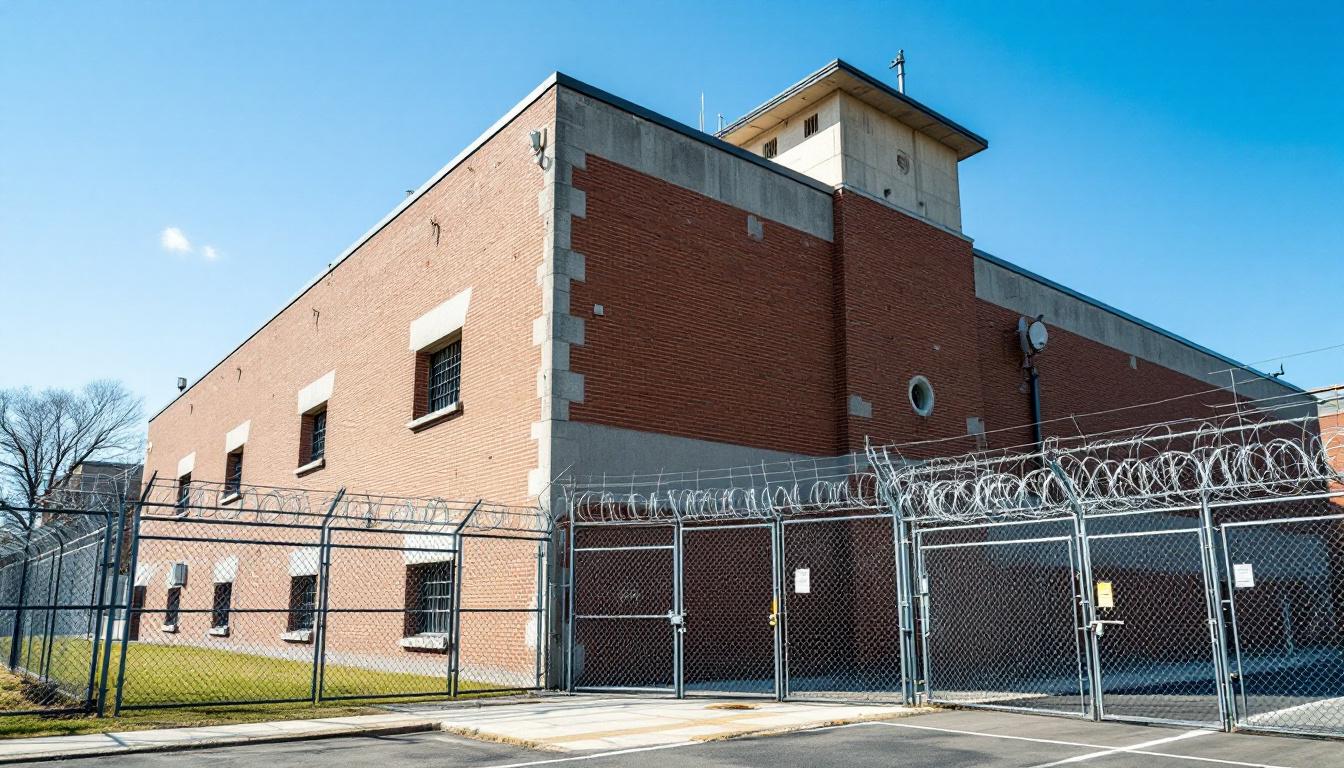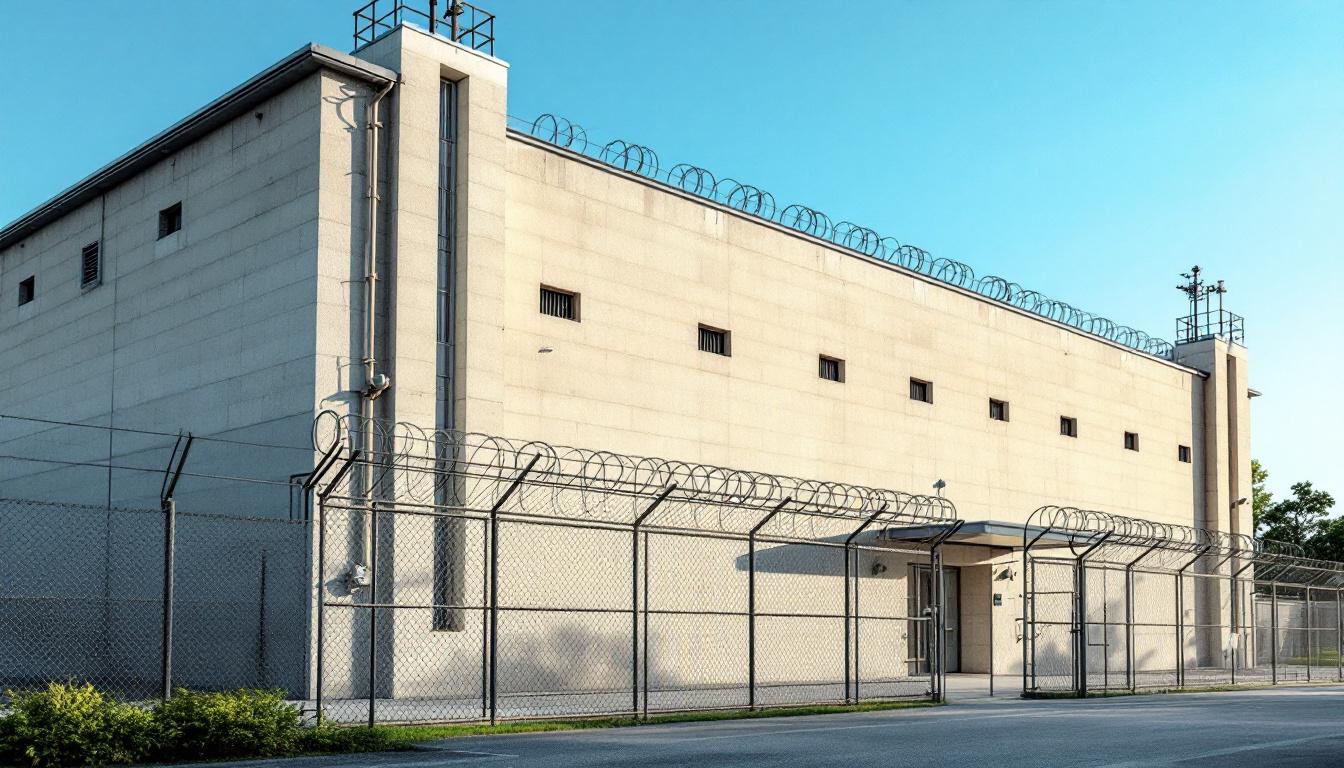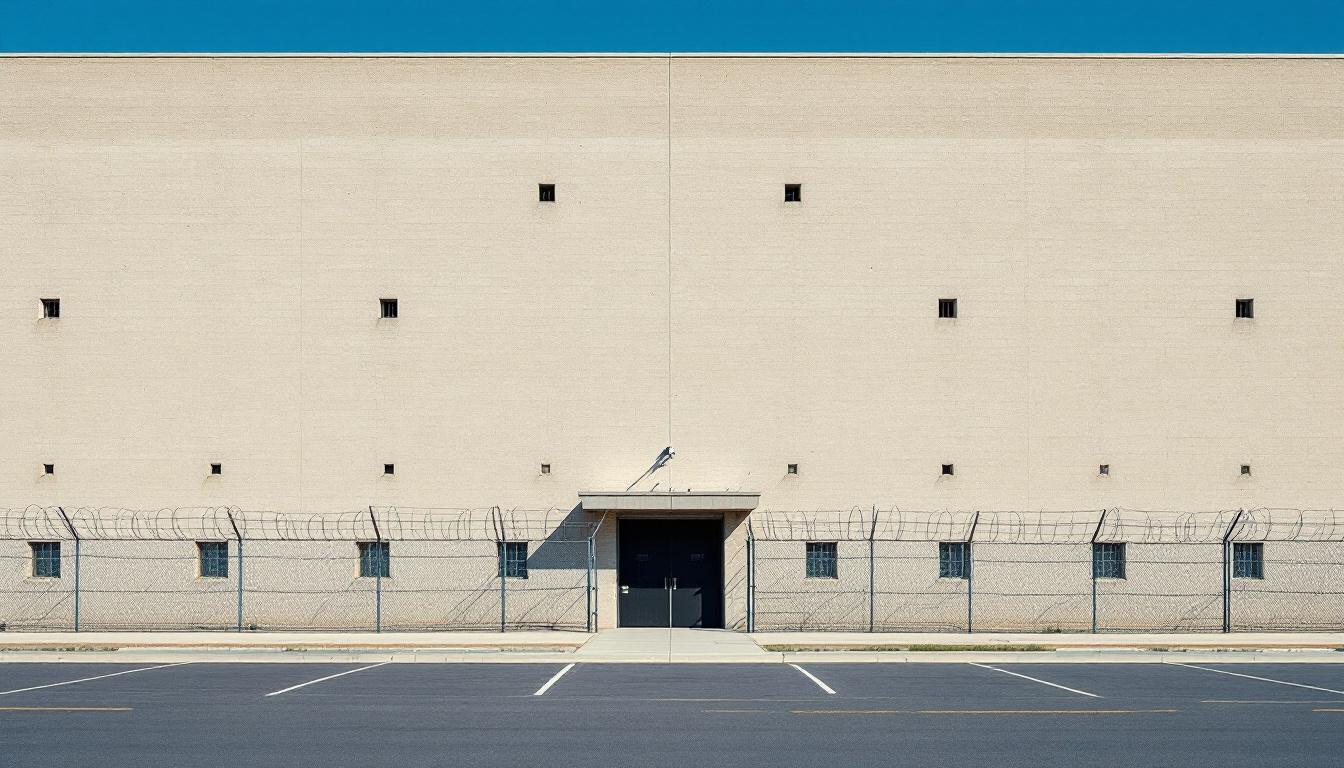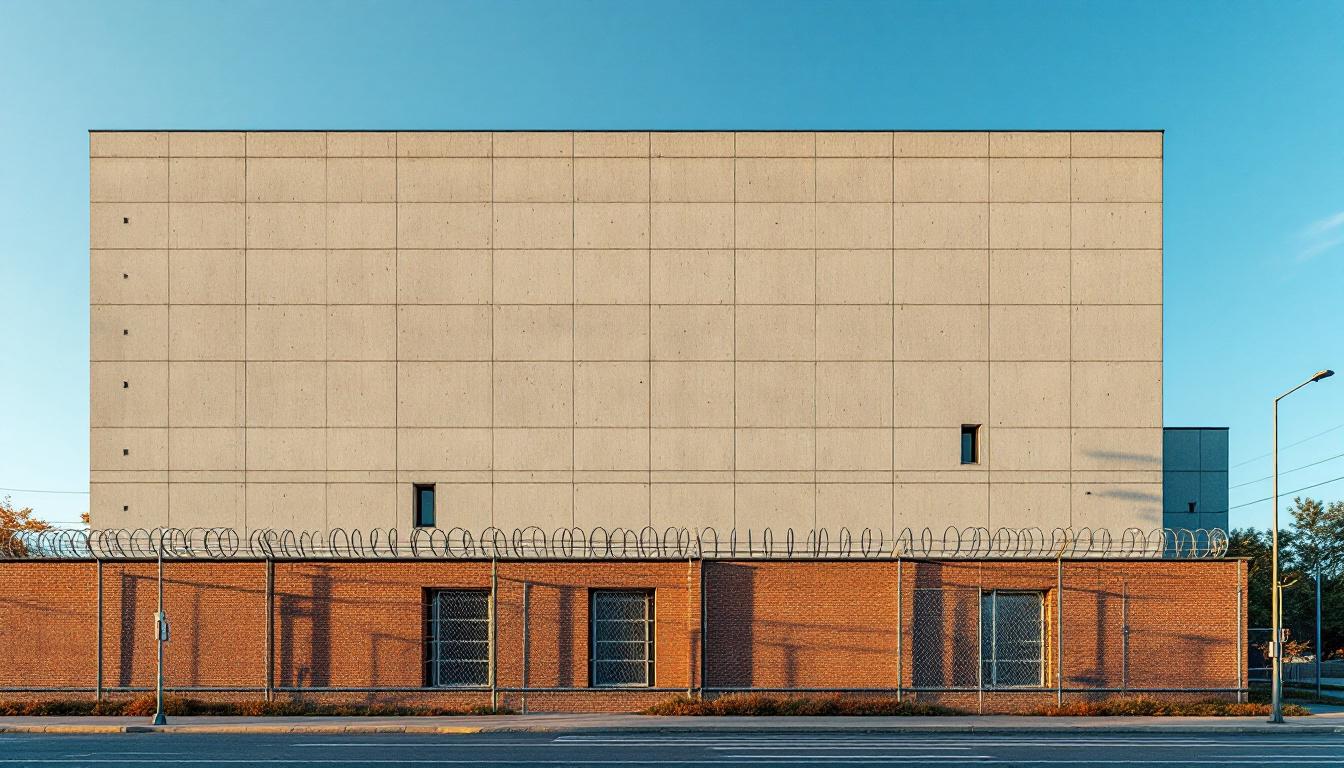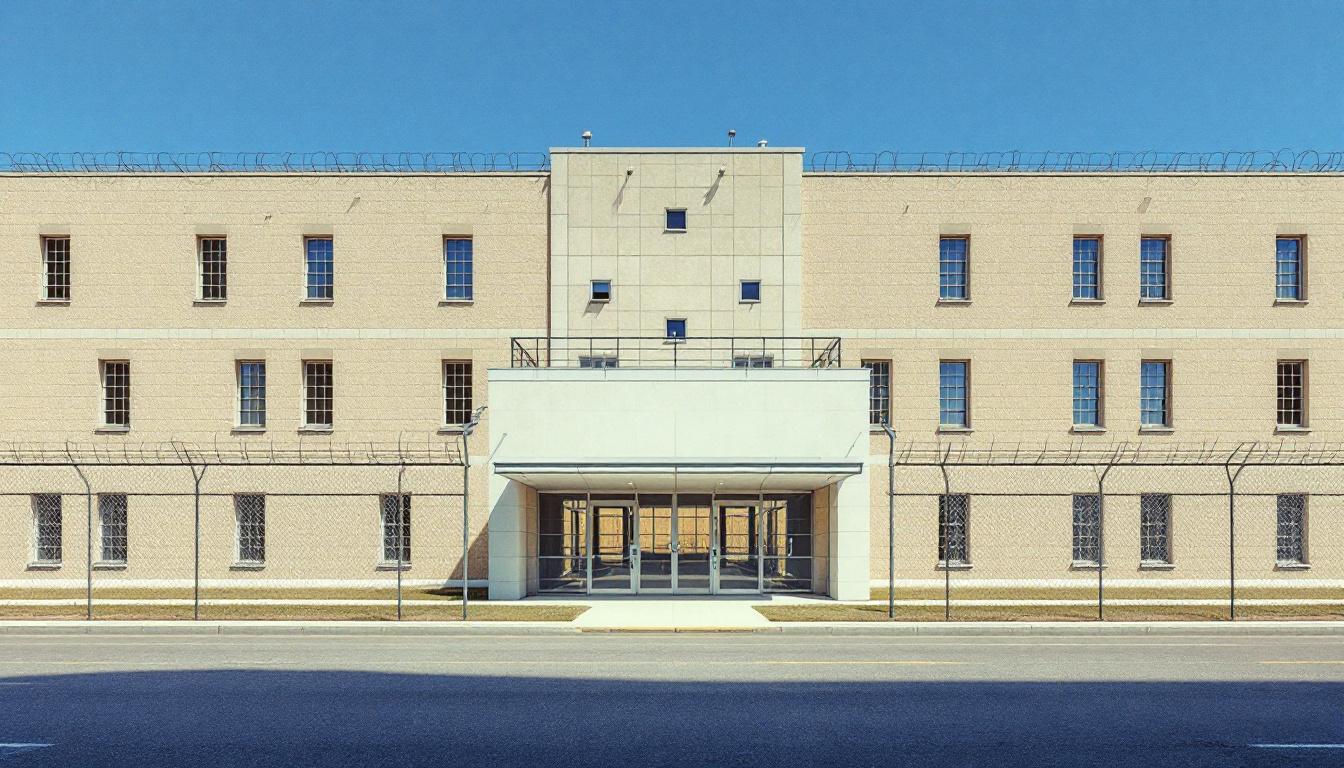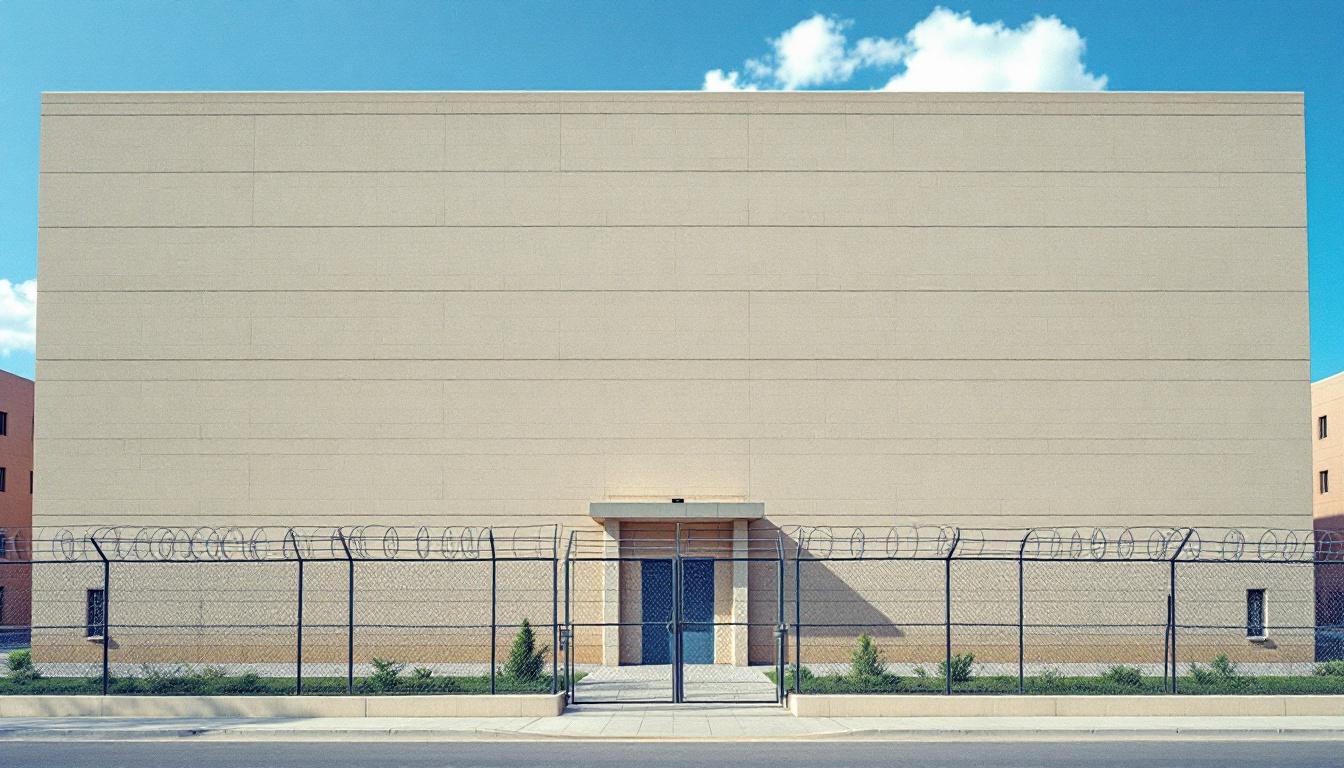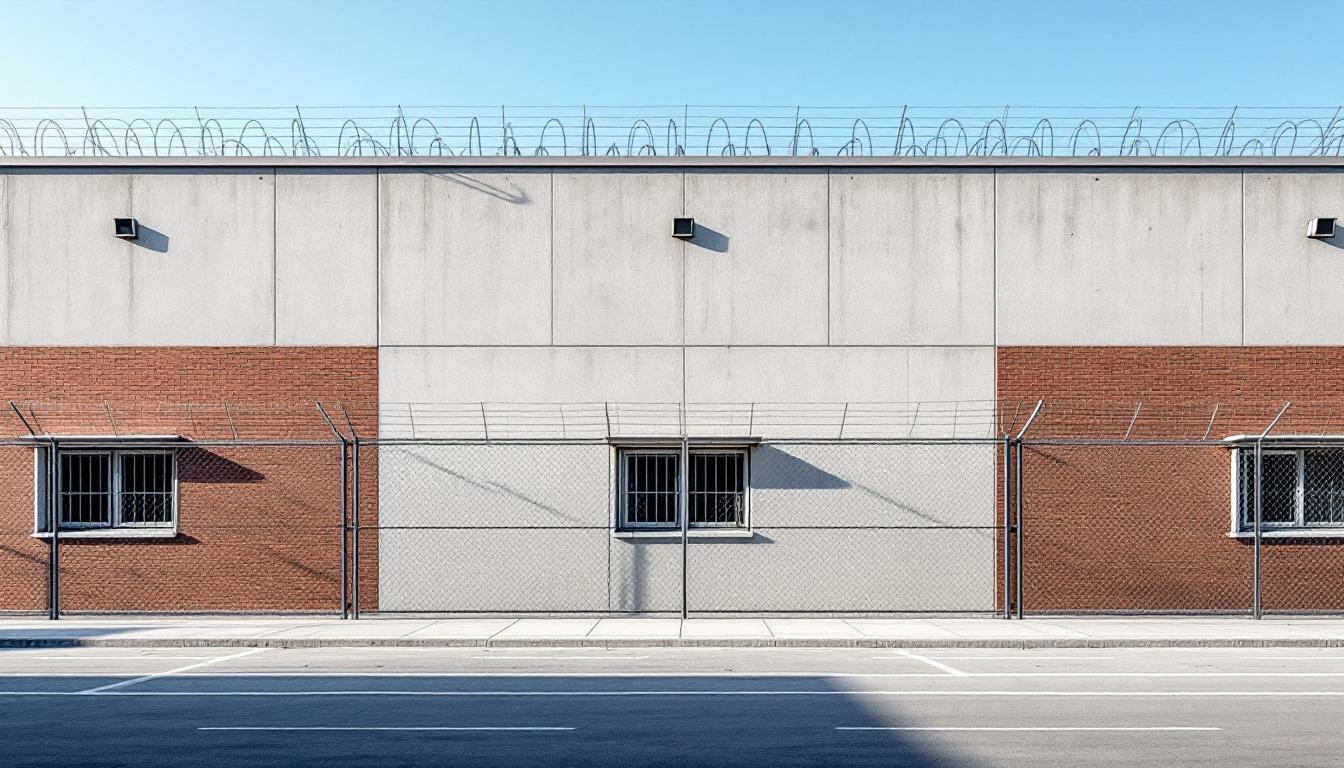
Quick Navigation
How to contact an inmate at Duval Regional Juvenile Detention
This comprehensive guide will walk you through how to connect with an inmate at Duval Regional Juvenile Detention. Follow the steps below to find an inmate and send letters and photos:
- Search for the inmate using our search tool below
- Create your account or log in to Penmate
- Write your message (up to 6,000 characters)
- Send instantly - inmates receive printed copies daily
Find an Inmate
Search for an inmate to start communicating today
Tip: You can search by first name, last name, or inmate ID number
To contact a person at Duval Regional Juvenile Detention start by searching for the person on the official facility website. Perform a search by following these steps:
- Step 1: Enter their first name and last name into the search form and click "Search"
- Step 2: Locate their inmate record
- Step 3: Write down their Inmate ID and any housing information provided
Important! Be sure to enter the person's full name. Nicknames should not be used.
How to Send Messages to Inmates

You can use your phone or computer to send emails, letters, and photos to an inmate. Messages are sent electronically to inmate tablets or kiosks at the facility. If you would like to send a message, start by searching for an inmate at Duval Regional Juvenile Detention.
Sending Photos and Postcards

A great way to send love and support to a loved one at Duval Regional Juvenile Detention is to send photos and postcards. It only takes a few minutes to send photos from your phone and it makes a huge difference. You can also mail postcards with words of support and inspiration, or design your own postcard for special moments like birthdays and holidays.
Important! Be sure not to send any explicit photos or they may not be approved by the facility. You can also use a photo printing app like Penmate to make sure your photos are printed at the correct size (4x6 or 3x5) and are mailed according to the rules and regulations of Duval Regional Juvenile Detention.
Frequently asked questions about Duval Regional Juvenile Detention
-
How long does it take to deliver a message?
If you're sending an email message your letter is usually delivered within 24-48 hours. For messages sent via mail you should expect delivery within 3-7 days. All messages will need be approved by Duval Regional Juvenile Detention.
-
How much does it cost to send a message to Duval Regional Juvenile Detention?
You can send a message free using your phone or mail a message via USPS for the price of a $0.60 stamp and envelope. You can also purchase credits or e-stamps from services starting at $1.99.
-
What services can I use to contact an inmate at Duval Regional Juvenile Detention?
Penmate
You can use Penmate to send letters and photos to an inmate from your phone. It's an easy way to stay in touch during your loved one's incarceration. Use the inmate locator to find an inmate's location and contact information, then you can send messages within a few minutes.
Securus messaging
Securus may be another option for communicating with an inmate at Duval Regional Juvenile Detention. You can create a friends and family account and purchase credits to send messages. All messages will be reviewed and must be approved by the facility.
JPay
Some county jails and state prisons may support sending messages with JPay. You must register an account with the system, find your loved one, and purchase stamps to send messages. For some locations you can also attach photos.
Smart Jail Mail
You may also check if Smart Jail Mail is available at Duval Regional Juvenile Detention. Smart Jail Mail is operated by Smart Communications and has contracted with some state and county jails. After purchasing credits, your messages and photos are sent to the facility, printed out, and then handed out to your loved one.
-
What is the mailing address of Duval Regional Juvenile Detention?
Mailing address:
Duval Regional Juvenile Detention
1241 E 8th St
Jacksonville, FL 32206
Phone: (904) 798-4819 -
What are the visiting hours at Duval Regional Juvenile Detention?
Visiting hours at Duval Regional Juvenile Detention vary by housing unit and security level. Generally, visits are scheduled on weekends and holidays, with some facilities offering weekday visits. Contact the facility directly at (904) 798-4819 or check their website for the current visiting schedule. Visits typically last 30-60 minutes and must be scheduled in advance.
-
What items are prohibited when sending mail to Duval Regional Juvenile Detention?
Prohibited items typically include: cash, personal checks, stamps, stickers, glitter, glue, tape, staples, paperclips, polaroid photos, musical or blank greeting cards, hardcover books, magazines with staples, and any items containing metal or electronics. Only send letters on plain white paper with blue or black ink. Photos must be printed on regular photo paper (no Polaroids). Always check with Duval Regional Juvenile Detention for their specific mail policies.
-
How do I send money to an inmate at Duval Regional Juvenile Detention?
You can send money to an inmate at Duval Regional Juvenile Detention through several methods: 1) Online using JPay, Access Corrections, or the facility's approved vendor, 2) Money orders mailed directly to the facility with the inmate's name and ID number, 3) Kiosks located in the facility lobby, or 4) Over the phone using a credit or debit card. Fees vary by method, typically ranging from $2.95 to $11.95 per transaction.
-
Can I schedule a video visit with an inmate at Duval Regional Juvenile Detention?
Many facilities now offer video visitation as an alternative to in-person visits. At Duval Regional Juvenile Detention, video visits may be available through services like Penmate, Securus Video Connect, GTL, or ICSolutions. Video visits typically cost $10-20 for 20-30 minutes and must be scheduled in advance. You'll need a computer or smartphone with a camera and reliable internet connection. Contact the facility for their specific video visitation policies and approved vendors.
-
What identification do I need to visit an inmate at Duval Regional Juvenile Detention?
All visitors must present valid government-issued photo identification such as a driver's license, state ID, passport, or military ID. Minors must be accompanied by a parent or legal guardian who can provide the minor's birth certificate. Some facilities require visitors to be on the inmate's approved visitation list, which may require a background check. Contact Duval Regional Juvenile Detention for specific ID requirements and visitor approval procedures.
-
How can I find out an inmate's release date?
To find an inmate's release date at Duval Regional Juvenile Detention, you can: 1) Use the online inmate search tool if available, 2) Call the facility's records department, 3) Contact the inmate's case manager or counselor, or 4) Have the inmate provide this information during a call or visit. For privacy reasons, some facilities only release this information to immediate family members.
Facility Overview
Contact Information
Duval Regional Juvenile Detention1241 E 8th St
Jacksonville, FL 32206
Phone: (904) 798-4819
Official Website
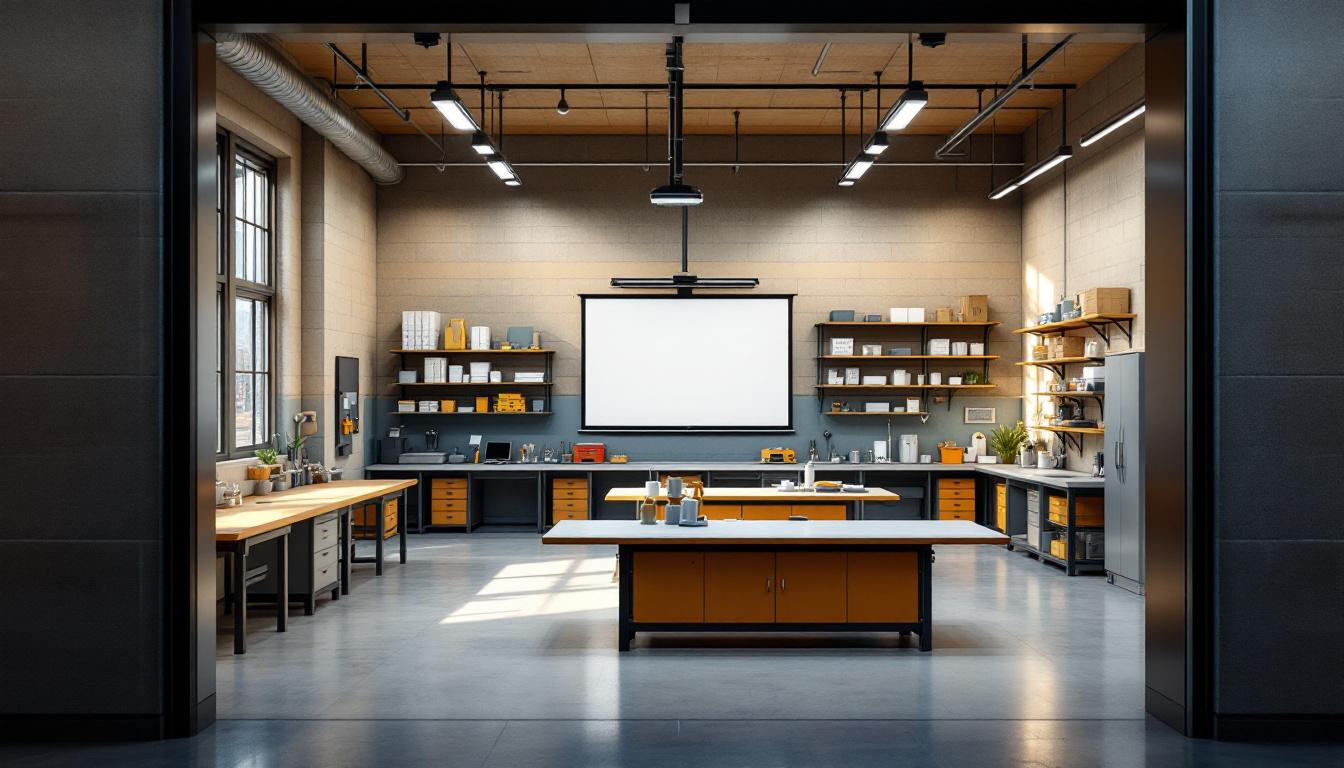
About Duval Regional Juvenile Detention
Evidence-based rehabilitation programming and comprehensive youth development services form the operational foundation of Duval Regional Juvenile Detention Center, which serves as a critical component within Florida's juvenile justice framework. Located in Jacksonville, this FL correctional facility typically provides structured educational opportunities, behavioral intervention programs, and individualized case management designed to address the complex needs of young individuals in the state's care. Mental health support services, substance abuse counseling, and family engagement initiatives may also be integrated into the facility's approach, reflecting contemporary research on effective juvenile rehabilitation strategies.
Within Florida's broader correctional system, the facility generally operates under state guidelines that emphasize both secure custody and therapeutic intervention for youth awaiting court proceedings or serving shorter-term commitments. The center's role often extends beyond basic detention to include comprehensive assessment services that help inform judicial decisions and treatment planning. Educational programming typically continues during a youth's stay, with efforts made to coordinate with home school districts to minimize academic disruption.
Jacksonville's position as a major urban center in northeast Florida means the youth detention facility serves a diverse population from both urban and surrounding rural communities. Staff members generally work to maintain connections between detained individuals and their families while providing the structure and support necessary for positive behavioral change. The facility's operations typically align with Florida Department of Juvenile Justice standards, emphasizing safety, rehabilitation, and successful community reintegration as primary objectives for the young people in its care.
Programs & Services
From academic advancement to therapeutic intervention, the breadth of opportunities at Duval Regional Juvenile Detention Center reflects a comprehensive approach to youth development and rehabilitation. The facility typically emphasizes creating pathways for personal growth that address both immediate needs and long-term success. This multifaceted philosophy recognizes that effective juvenile justice involves addressing educational gaps, behavioral challenges, and life skills development through integrated programming.
Educational opportunities often form the cornerstone of the facility's offerings, with programs designed to help individuals continue their academic progress while in custody. The center may provide structured classroom instruction that aligns with state educational standards, allowing participants to earn credits toward graduation. Vocational training components typically complement traditional academics, offering hands-on learning experiences that can translate into future employment opportunities upon release.
Moreover, therapeutic and support services address the underlying factors that may have contributed to an individual's involvement in the justice system. Substance abuse treatment programs often utilize evidence-based approaches to help participants develop coping strategies and healthy decision-making skills. Additionally, work release opportunities, grounds maintenance programs, and agriculture-based activities may provide practical work experience while teaching responsibility and job readiness skills. These diverse offerings work together to create a comprehensive framework for rehabilitation and successful community reintegration.
Daily Life & Visitation
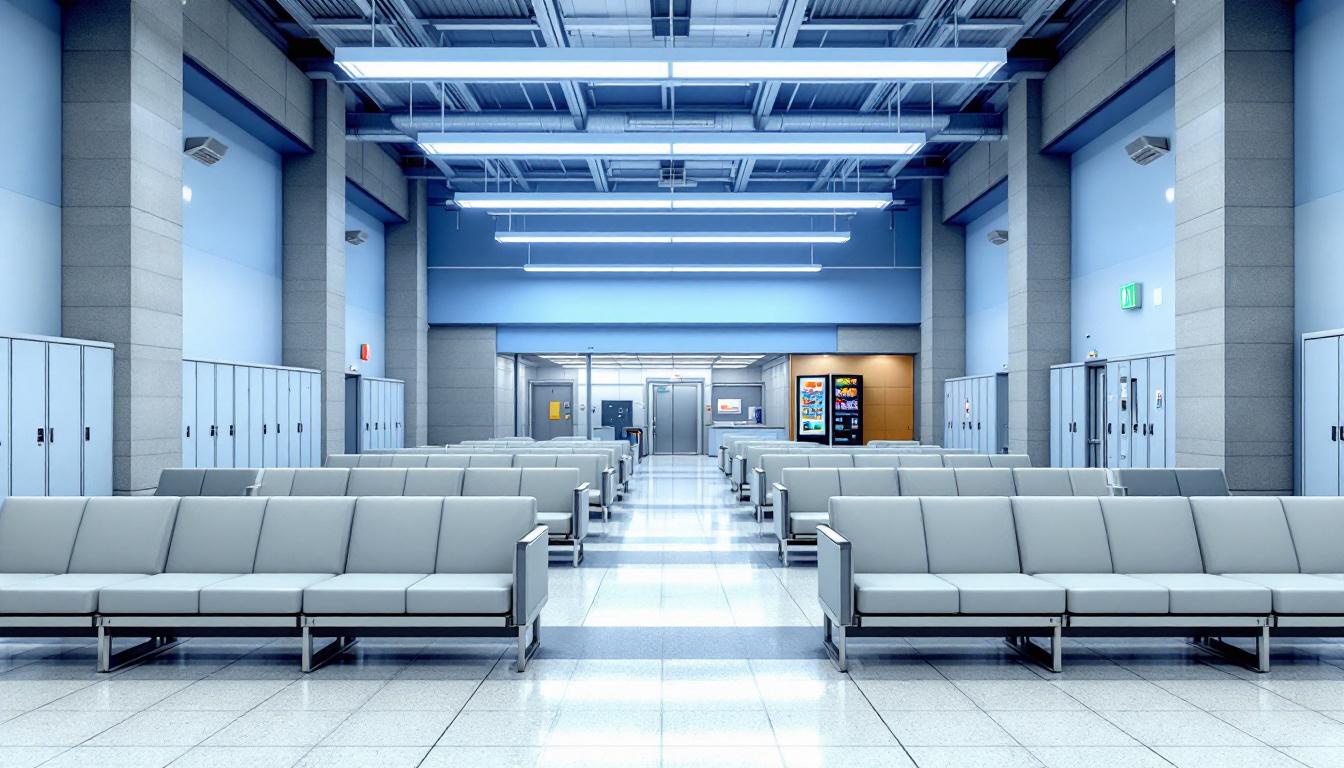
The sound of morning announcements typically signals the beginning of another structured day for individuals housed at the "Duval Regional Juvenile Detention Center." At present, the facility actively maintains a routine designed to provide stability and purpose for young residents. Wake-up generally occurs in the early morning hours, followed by personal hygiene time and room preparation. Individuals typically participate in scheduled meals, educational programming, and various activities throughout the day. The evening hours usually include additional programming, quiet time, and preparation for lights-out.
Living accommodations at the facility generally consist of individual or shared rooms within secure housing units. Each living space typically includes basic furnishings such as a bed, desk, and storage area for approved personal belongings. Moreover, individuals usually have access to common areas within their housing units where they may interact with peers during designated times. Meals are typically served in dining areas or housing units, with menus designed to meet nutritional requirements for growing adolescents. The facility often provides three meals daily along with snacks, and dietary accommodations may be available for medical or religious needs.
Educational programming typically forms a central component of daily life, with individuals usually attending classes during regular school hours. Whereas academic instruction remains a priority, the facility often offers recreational activities including physical exercise, games, and structured group activities. Family connections are generally maintained through scheduled visitation periods and phone calls, though specific policies may vary based on individual circumstances and facility guidelines. Additionally, individuals may typically access commissary services to purchase approved personal items, and various counseling or therapeutic programs often provide additional support during their stay.
Ready to Connect?
Start communicating with your loved one today
Search for an Inmate
